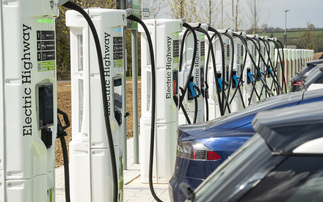Study from Social Market Foundation warns many homes on heat networks are facing soaring bills, poor energy efficiency, and weak consumer protection
The government is being urged to undertake a major overhaul of the regulatory and policy landscape governing the heat network sector, amidst warnings thousands of households are facing excessive bills.
The Social Market Foundation think tank has today published a new report - titled A Fairer Deal for Heat Networks - which argues thousands more homes may be connected to heat networks than previously thought, with many households facing bills that are higher than they should be.
According to the report, the government's most recent published estimate is that heat networks serve 480,000 households, based on 2014 data. But the new analysis based on more recent experimental statistics estimates the true figure could now be as high as 900,000 homes, or one in 25 households across the UK.
Heat networks are particularly common for flats and social housing projects, where one in 12 households are thought to be part of a heat network.
Heat networks or district heating projects that distribute heat from a central source promise to reduce emissions and costs by tapping into waste sources of heat or more efficient generators. The government has said the technology has a key role to play in decarbonising heating, earlier this month announcing the latest wave of funding for a series of green district heating projects.
However, the sector has also faced concerns about the effective monopoly position of heat network providers with some projects accused of poor customer service and overcharging.
The Social Market Foundation report argues that too many projects serves homes with poor levels of energy efficiency and impose high maintenance costs on customers. Moreover, it found that a lack of accurate metering at some social housing projects means people do not get charged more for using more energy, leading to excessive use and unnecessary costs.
Similarly, it warned there is a lack of regulatory protection from Ofgem, given energy bills for those in housing networks are treated as housing service charges.
The report said these longstanding issues have been exacerbated by the ongoing energy crisis, given people reliant on heat networks did not benefit from the Government's Energy Price Guarantee, which capped bills at £2,500 for the typical households, since heat networks' energy purchases are treated as business sales.
Most households on heat networks have been protected from price rises until recently because operators tend to purchase energy at rates fixed for a year or two. But as those deals expire, some households are reportedly facing bills doubling or increasing by up to 700 per cent in some cases.
The report argues the government should intervene to tackle rising energy bills, maximise emissions savings, and bolster the attractiveness of heat networks.
Specifically, it calls for the energy bill support scheme to be extended to cover heat networks and impose a cap on service charges.
It also proposes an accelerated transition to metered networks backed by increased grant funding to encourage uptake of the technology, and calls for a firm target for Ofgem to start regulating heat networks by April 2024 alongside incentives for heat networks to improve their efficiency.
And it argues heat network operators should be required to take steps to curb their emissions, calling for the dismantling of inefficient and outdated networks and funding for households on dismantled networks to transition to heat pumps.
Will Damazer, the report's author, said heat networks had "a significant role to play to get the UK to net zero", but he warned they "are not living up to that potential".
"The problems in heat networks disproportionately affect the worst off families," he said. "They have to put up with higher prices, worse regulation and less control over their heating and energy use. The government has belatedly recognised the problem, and is starting to take action - but the scale and timing is not good enough. Increasing the pace of metering would not solve everything, but would be a crucial step in the right direction, reducing bills for households whilst helping the UK reduce its carbon emissions."
The Department for Energy Security and Net Zero was considering a request for comment at the time of going to press.
BusinessGreen readers can sign up now for their free pass to this year's Net Zero Festival.











